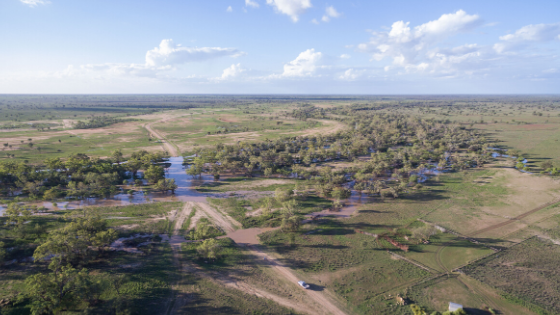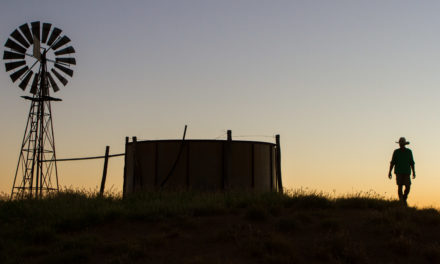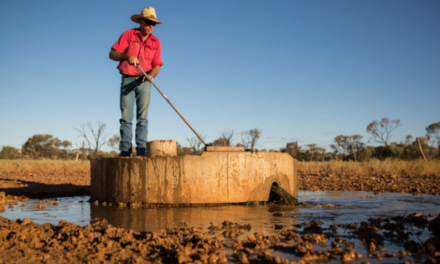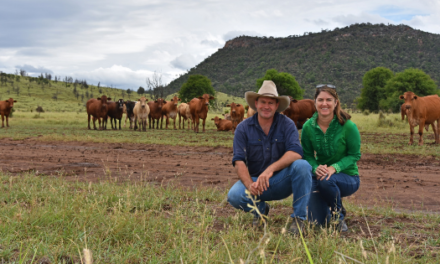For many of my city friends, this forced isolation has been incredibly challenging. People who thrive on routines, no longer have that safety blanket. Extroverts who look forward to their daily interactions with others are missing their mates and introverts can’t wait for everyone to leave the house again.
Many are mourning their loss of freedom and control. Plans are on hold, or decimated, and no-one can answer the question: “How long will this last?”.
The great unknown: It’s tough
Thoughts of making do with limited resources, tight budgets, variables out of your control and unknown outcomes is scary. It would be easy for a primary producer in Australia to say “welcome to my world”. But you won’t hear it because we know how tough this can be on your mental health and well-being.
You also won’t hear it because for many it’s life as usual on the farm. For many with boarding school children, we are enjoying the opportunity to have the whole family together and the children are loving the wide open spaces of home. Poor internet connectivity makes home schooling challenging, but we deal with it.
Having endured the best and worst of mother nature, we know the best strategy moving forward is to gratefully go about our lives while ensuring those around us are OK.
At the national level, farmers are reassuring the public that there is more than enough food to feed Australians. We have witnessed the fear of the unknown manifest into blame and greed. We have also heard stories of incredible kindness and generosity.
Good news stories remind us that life is full of choices. The reality, however, is that bad news gets our attention. Currently the media is filled with continual doom and gloom stories on a 24-hour news cycle.
The juggle is real
If you are a parent now working from home, the house you looked forward to returning to each night is now a fortress you cannot leave. I remember my father-in-law once telling me how my sister-in-law, who lived in Sydney, “had a bad day at home and needed to escape to the shops for a bit”. This was over 10 years ago and still remember thinking at the time, “she’s lucky to have shops to escape to”.
Adjusting to change takes planning, patience and perseverance. Plans, however, should be flexible. Now is not the time to write a long to-do list of all those jobs you would do when you had extra time. It’s about reflection and setting intentions. Instead of picking up a paintbrush, is it more important to pick up the phone and check in on a loved one.
What will be your definition of success when this COVID-19 lockdown is over?
Be careful of the word ‘just’. Without schedules, minutes can easily become hours. If you are trying to work from home and look after children it is very easy to say, “I will play with you…just let me finish this first”.
I am fortunate to have 20 years of preparation for enforced isolation with my family. During times of personal struggle I have had an amazing support network of people who have “been there, done that and survived” with plenty of hints to help.
There is no benefit in thinking in terms of end dates. But there is time for reflection about what we each want as outcomes when this is over. Many professionals are sharing their knowledge and insights right now. For those wanting some simple sanity savers here is my list, obtained and modified thanks to the shared wisdom of others.
17 sanity-saving suggestions
-
Don’t sweat the small stuff
– when your focus is narrow the bigger picture is harder to see and you can easily transform into the cranky parent, unhappy partner and unhelpful friend.
-
Create your happy place
– everyone needs a space of their own to do what makes them happy. It may be a comfy chair to enjoy a cuppa in at the start and end of each day, a vegetable garden to potter around in or new linen and cushions for your bed.
-
Care for your community
– humans thrive on connection and a positive from this experience has already been the strengthening of relationships between neighbours and community members.
-
Celebrate the small wins
– some days don’t go to plan, especially with children in your house. If you got the washing done, dried, folded and put away, you rock. If you didn’t, there’s always tomorrow.
-
Isolated does not have to mean alone
– emails, letters, phone calls, text and social media messages make a difference to someone’s day.
-
It’s OK not to be OK
– Living in denial is not healthy but facing reality can be incredibly challenging. If you need to take time out to have a pity party, you should do so. But remember, all good parties have a theme, guest list and strict time frame. Deal with what you need to, include your support team if needed and then get on with your day.
-
This too shall pass
– history tells us this difficult time will end just like great moments don’t last. Try and keep this perspective on the really tough days.
-
Everyone is an individual
– we all have emotional cups that fill and empty over time. Often the one thing that tips us over the edge seems trivial, but this is because your cup was full of negative emotions. Be aware of the level of your cup and those around you. Identify ways to empty your cup of negative emotions and replace them with happy ones.
-
Relationships take work
– you must invest in your emotional bank account. This means you must manage your interactions with your partner and ensure the good interactions far outweigh the bad ones, in order to keep your perspective positive.
-
Look up and out
– sunshine and fresh air are great remedies for down days. By taking them in you remind yourself to lift your head, take a deep breath and look to the future.
-
Give yourself a break
– be weary of agreeing to anything that will add to your stress. Think twice before signing up any online challenges and take time out if you need to.
-
It’s not what happens to you, but how you respond that matters
– at the end of the day, life is about choice and everyone should decide how they respond and own their actions.
-
There is good in everything
– sometimes this is hard to see, so before you open you eyes each morning think of three things you are grateful for and start your day in a better frame of mind.
-
You can learn something new every day
– with less demands on your time and so many free online tutorials, now is the time to enjoy the simple things like making bread from scratch, propagating plants or improving your excel skills.
-
Kindness is contagious
– by bringing joy to others you improve your own mental state.
-
Think outside the box
– get creative for your own and do what works for you.
-
Laughter really is the best medicine
– if it all gets too much, watch a comedy, call a friend who makes you laugh or watch some silly YouTube clips.
Remember, it’s even normal to not like your partner at times. We are all individuals and often what attracts us to others can be the very thing that annoys us about them. Those witty comments that amuse us seem not as funny and can sometimes hurt when delivered in the wrong context or time of day.
At the end of the day life is about love. Remember why you love those around you and try to put everything in context.
The Coronavirus may define us right now, but it will not defeat us. Live your values, focus each day on the things you can control and keep connected with those who matter most to you.





